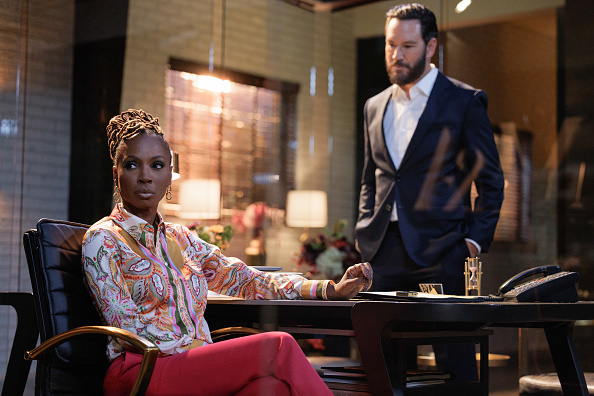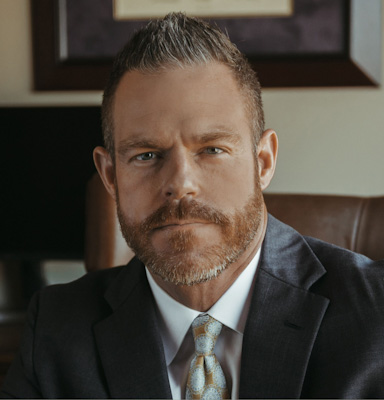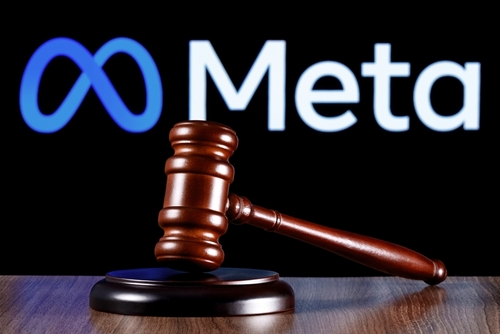NBC's 'Found' is far-fetched, but it gets this lawyer thinking about bias in investigations

Gabi Mosely, played by actress Shanola Hampton, and Hugh “Sir” Evans, played by actor Mark-Paul Gosselaar, in a season two episode of NBC’s Found. (Photo by Steve Swisher/NBC via Getty Images)
Earlier in my career, I was cross-examining a detective during a jury trial. The investigation, he conducted, was one-sided. He had zeroed in on his suspect, and everything that followed was simply an attempt to support his narrative.
As I was questioning him about bias, pointing out the various things that he could have done to conduct a full and impartial investigation, he finally answered that his job was to be impartial and consider evidence that could prove guilt or innocence.
Funny thing, though: He couldn’t provide specific examples of what he did to try and find my guy “innocent.” At the end of the day, he was biased, whether he knew it or not.
The problem of bias in criminal investigations is what initially caught my attention regarding Found, an NBC series that focuses on an investigation team led by Gabi Mosely, played by actress Shanola Hampton. Mosely and her team attempt to locate missing people whom law enforcement are no longer searching for. Those victims, who as members of marginalized groups, don’t receive the same media coverage as other demographics.
I was intrigued by the investigation team. Each member offers a certain skill that sets them apart from the others, and together, they create a formidable force. Furthermore, they all have been personally impacted by a missing person—whether that be themselves or someone they love.
Skeletons in the basement
However, that bond of personal trauma isn’t the only factor separating them from law enforcement.
Enter actor Mark-Paul Gosselaar, who played Zack Morris on Saved by the Bell from 1989 to 1993 (and its later spinoffs), as Found’s Hugh “Sir” Evans. He kidnapped Mosely when she was a child and held her captive for over a year. As an adult, she turned the tables by abducting him and by keeping him locked in her basement. Mosely uses his “expertise” as a serial kidnapper to help solve cases, not unlike Hannibal Lecter in 1991’s The Silence of the Lambs.
Sadly, the aspect of the “kidnapper in the basement” is where the series goes a bit off the rails. Sure, it provides a departure from the common parallels that so many crime dramas fall into. But the notion is so outside the bounds of reality that it robs the show of any sense of authenticity that it could offer.
Nevertheless, the plot gives us an opportunity to investigate the potential problems of implicit bias in criminal investigations.
When looking at the background of Mosely’s team members, it’s hard not to think that they could be biased and prejudiced, whether they know it or not. Moreover, it appears that actor Arlen Escarpeta, who plays tech expert Zeke Wallace on the show, realizes his character’s bias. In an interview, he noted that a lot of the show’s characters have been “jaded by the weight of life,” and he said they are “all just … a bunch of broken people that are trying to heal one another.”
Potential for problematic perspectives
Simply struggling with life and past trauma isn’t necessarily going to make someone implicitly biased toward certain groups. However, when someone suffers that pain and emotional injury with certain groups, the potential for a problematic perspective is intensified.
That’s where we have to hope that self-awareness kicks in and people refrain from putting themselves in positions where their past trauma can affect their future decisions. One way to examine your bias is to take Harvard University’s online Implicit Association Test.
I run into many people in my practice like the detective I described earlier. Whether it’s law enforcement, prosecutors or even some judges, we see bias in all aspects of the criminal justice system. Still, sometimes that bias is only evident from a person’s outward actions.
At other times, it’s evident from their background, as well. I’ve dealt with many people who work in law enforcement or as prosecutors because they are passionate about “putting away” criminals. In some of those situations, the passion comes from their past trauma associated with being a victim.
After all, it’s common sense that those with biases that they are aware of toward criminal suspects aren’t the best candidates to investigate an alleged crime. But what about people who aren’t aware of their bias or refuse to accept that they are bias?
I remember working a case against a sex crime prosecutor. I approached her with some mitigation, letting her know that my client had been a victim of sex crimes as a young child. The concept of victim-offender overlap is widely documented.
That circumstance doesn’t excuse the criminal behavior, but at least helps explain it.
Regardless, the prosecutor looked at me with outright disdain. “That is offensive to victims,” she replied, explaining that she had been a victim, too, and she would never cause that type of pain for another person.
I knew that her past experiences created a bias that clouded her judgement. After all, if your bias causes you to disregard commonly held understandings in your field, it’s possible that it will also cause you to disregard your objectivity in other areas. That isn’t good for any party tasked with maneuvering through the criminal justice system.

Adam Banner
Adam R. Banner is the founder and lead attorney of the Oklahoma Legal Group, a criminal defense law firm in Oklahoma City. His practice focuses solely on state and federal criminal defense. He represents the accused against allegations of sex crimes, violent crimes, drug crimes and white-collar crimes.
The study of law isn’t for everyone, yet its practice and procedure seem to permeate pop culture at an increasing rate. This column is about the intersection of law and pop culture in an attempt to separate the real from the ridiculous.
This column reflects the opinions of the author and not necessarily the views of the ABA Journal—or the American Bar Association.



